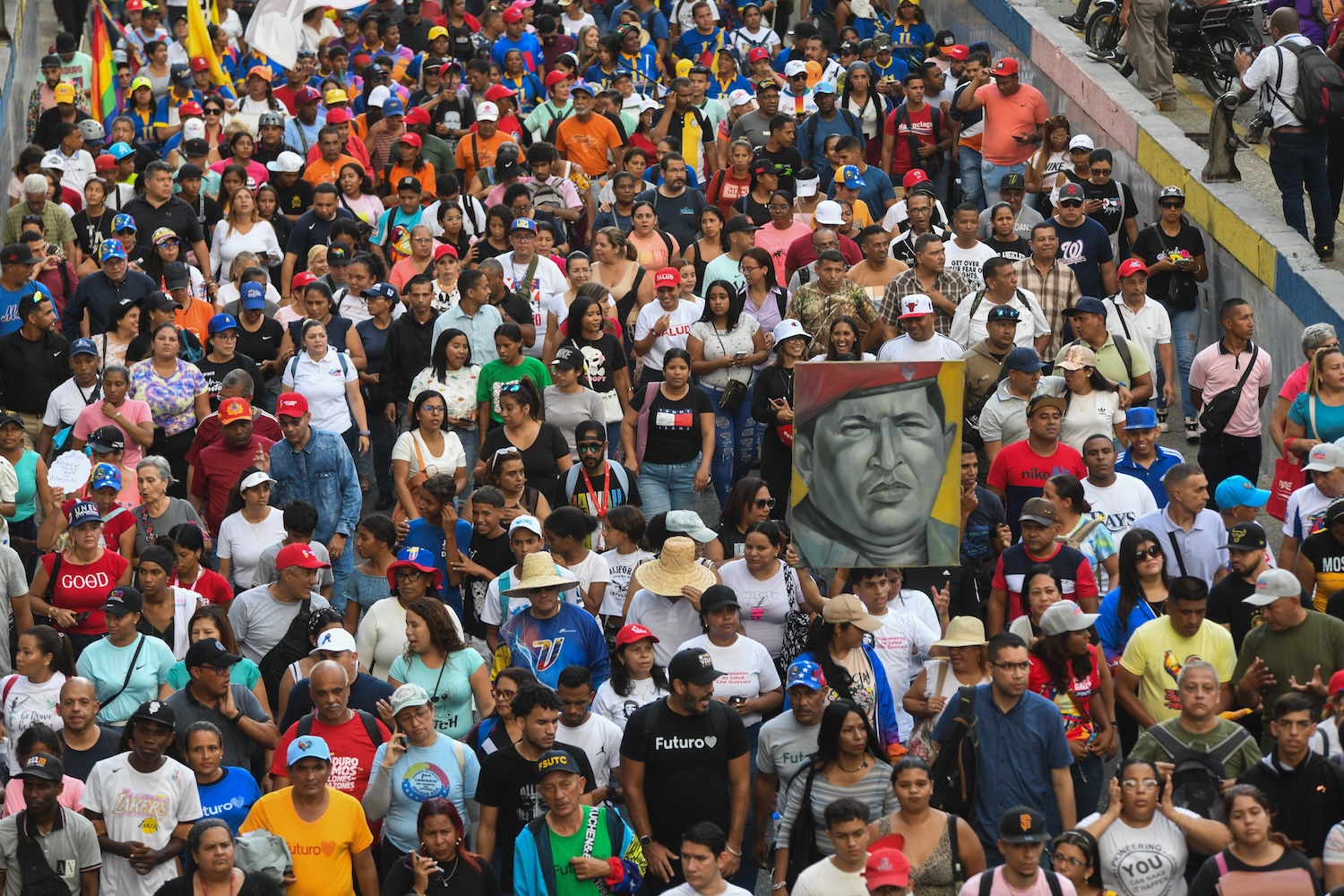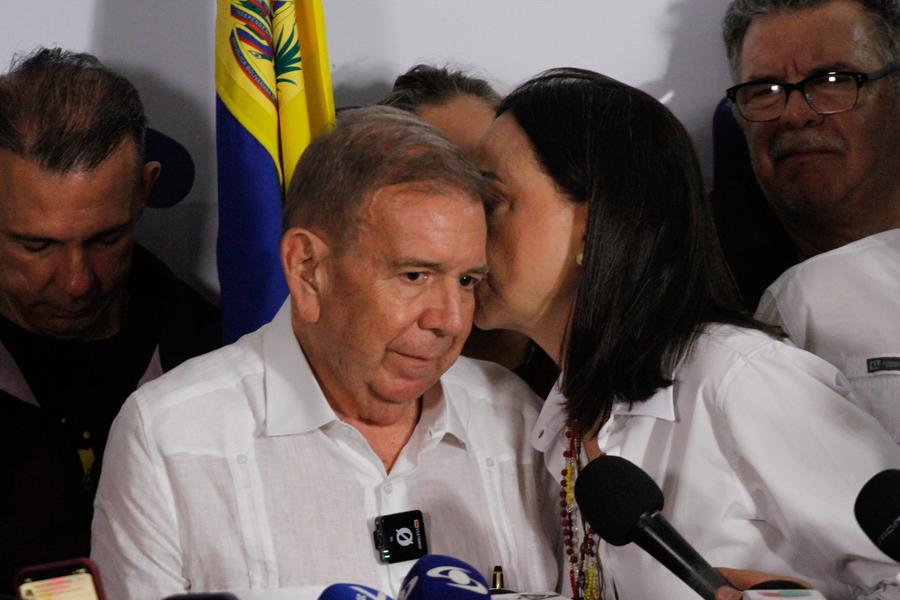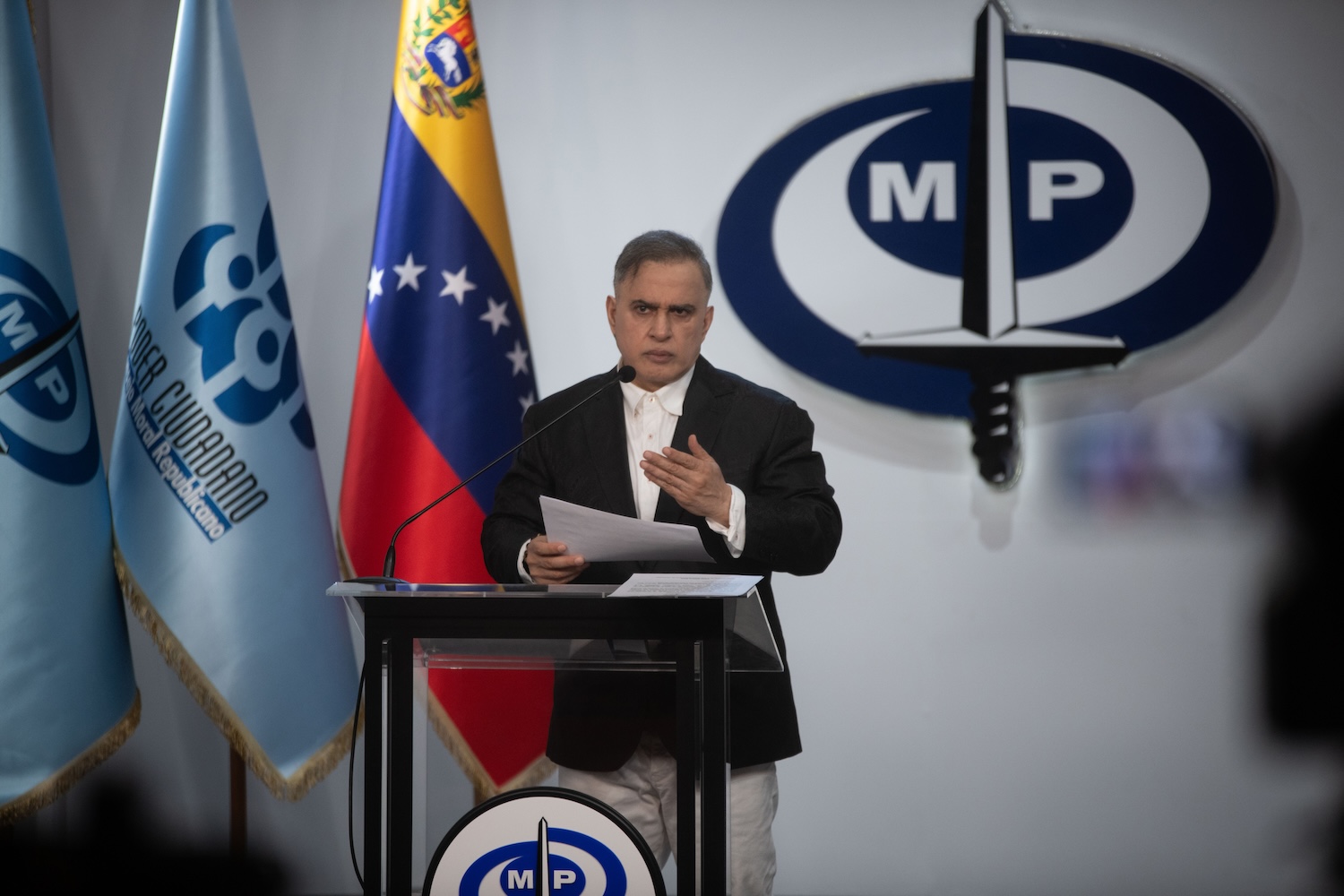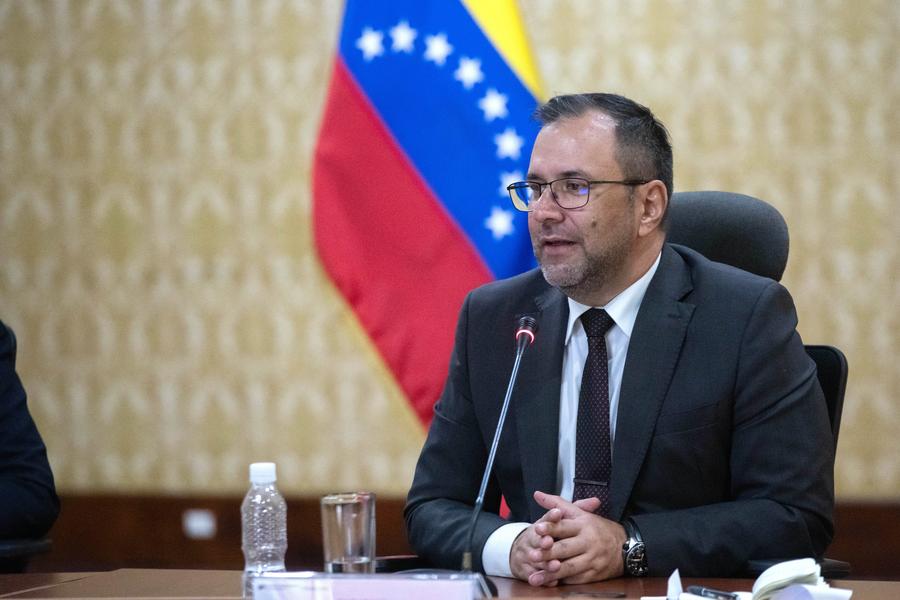After Edmundo’s farewell, will normalization come?
Alvaro Verzi Rangel
The departure of former Venezuelan opposition candidate Edmundo González Urrutia to exile in Spain marks the deplorable interference of the government headed by Pedro Sánchez (he described González as a “hero”), as well as that of the United States and the United Kingdom.
It may not be to the liking of the hegemonic press or Western countries and even less to the anti-Chavez opponents in Venezuela -but especially abroad- nor to their sponsors and financiers: the government of Nicolás Maduro is in full control of the country, strengthened by the absence of his rival in the elections of last July. González Urrutia chose to join the conspiracies of the Venezuelan dissident community in Madrid.
Gonzalez has an arrest warrant for the crimes of usurpation of functions, forgery of public documents, instigation to disobey laws, computer crimes, conspiracy and association to commit crimes; he is also accused of being responsible for the death of more than 20 people during the street protests after the elections.
Some analysts point out that the departure of the septuagenarian former candidate could mark the beginning of a détente and normalization of the tense political scenario left in Venezuela as a result of the attempt of the local right wing, supported by Washington and other European and Latin American governments, to turn the elections of last July 28 into the collapse of the Bolivarian regime and the presidency of Nicolás Maduro, according to an editorial of the Mexican newspaper La Jornada.

A lack of information by the National Electoral Council (CNE) was used by the opposition to disseminate from a private website false information on the election results to give the impression that Gonzalez had won the Presidency and to denounce an alleged electoral fraud.
This disinformation operation contributed to fuel a series of violent protests that left people dead, wounded and detained, and served as a pretext for several foreign governments and the Organization of American States (OAS) to disregard the Venezuelan institutionality.
Despite this stubborn interference and the campaign of the international hegemonic press, no state recognized him as president, as they did in 2019 with the puppet Juan Guaidó in a previous attempt to dislodge the government elected at the polls. Even less did they manage to build around his figure a sort of parallel government or in exile: the archipelago of anti-Chavez “leaders” is very broad and each one has its project and its financiers.
Autumn in Spain
The septuagenarian politician -not exactly known for his opinions or projects-, is now in asylum in Spain after being accused of supplanting the functions of the CNE and instigating rebellion, among other crimes, after failing to obtain refuge in the Dutch and Spanish embassies in Caracas. After obtaining a safe-conduct from the Venezuelan authorities, he traveled to Madrid aboard a military plane sent by Spain.

And González Urrutia left, leaving (as a fugitive from justice?) the self-proclaimed main leader of anti-Chavismo, María Corina Machado, who took several hours to take a position on González’s withdrawal, opening speculations on whether she was aware of the measure or not, or she found out -as everybody else did- with the official announcement of Vice President Delcy Rodríguez, on Saturday night.
Afterwards, Machado assured that the departure was necessary to preserve the freedom and life of her colleague, in the midst of a so-called brutal wave of repression. “We have reached a point where we need to move forward, as I said, and this is a moment in which Edmundo Gonzalez must be recognized as the elected president of Venezuela,” she added in a message.
Meanwhile, the Venezuelan Attorney General, Tarek William Saab, affirmed on Sunday that the departure to Spanish territory of Gonzalez was agreed with the Spanish diplomacy and that his departure from the country represents the end of a comedy. He confirmed on national TV that the governments of Spain and Venezuela agreed to grant him safe-conduct, in contradiction with what was maintained by the Spanish Foreign Minister, Manuel Albares, who denied having negotiated with Caracas.
In an ironic tone, he assured that with the departure of Gonzalez “ends the brief season of a humorous play, of a genre that I could say of comedy, of buffo theater that began this 2024 and that was called in a fateful way until the end”.

Spain negotiates
Venezuelan Vice-President Delcy Rodriguez pointed out in her networks that falsehood is not a good advisor: extensive conversations and contacts took place in order to arrange the departure of opposition leader Gonzalez Urrutia from the country with the full guarantees offered by a safe-conduct, as a result of the agreement between both governments.
The Dutch Chancellor, Caspar Veldkamp, specified in a letter to the Parliament that Gonzalez requested refuge in his embassy in Caracas the day after the elections. Venezuelan Foreign Minister Yván Gil, commented on this letter in social networks and remarked that this proves once again that the opposition plan was never electoral: the very day after the elections, González Urrutia was already in an embassy, that of the Netherlands.
Gil Pinto also announced that Venezuela will present a note of protest to the Netherlands for hiding the former opposition candidate, Edmundo González Urrutia, in its embassy in Caracas without informing the authorities, “according to international protocols”.
Change of residence
In early September, the opposition candidate stressed that he wanted to leave and continue his struggle from Spain, he added. Spanish officials, including former President Jose Luis Rodriguez Zapatero, participated in negotiations with Venezuelan authorities for Gonzalez to leave the country, international news agencies confirmed. Thus, the former candidate walked a few meters down the bucolic El Valle street in the exclusive sector of the Country Club, in Caracas, and changed his residence to that of Spain, where the fugitive opposition fugitive Leopoldo López, another of those who ended up precisely in Madrid, was once known to be protected.

As expected, the Secretary General of the Organization of American States, Luis Almagro, expressed his displeasure for the forced exile of Gonzalez, whom he described as “undoubted winner of the elections”, while the Executive Secretary of the Bolivarian Alliance for the Peoples of Our America, Jorge Arreaza, described Almagro’s position as decadent, whom he labeled as a servile figure and surrendered to the orders and designs of Washington.
The U.S. Secretary of State, Antony Blinken, pointed out on the social network X that the opposition leader continues to be the best hope for democracy in the South American country and that his departure is the direct result of the anti-democratic measures that Nicolás Maduro has unleashed on the Venezuelan people.
All this is taking place while tranquility prevails inside Venezuela. If in Madrid, outside the military base where Gonzalez landed on Sunday, there were at least a couple of demonstrators to receive him (he did not show himself, he left through another gate) in Caracas there was not even a single street expression around Gonzalez and his exile.
*Sociologist and international analyst, Co-director of the Observatory on Communication and Democracy and senior analyst of the Latin American Center for Strategic Analysis (CLAE, www.estrategia.la).
